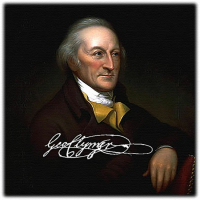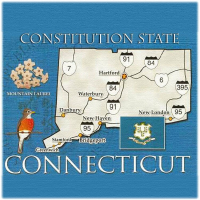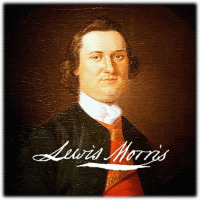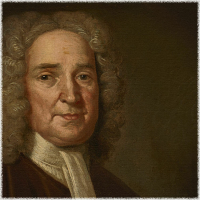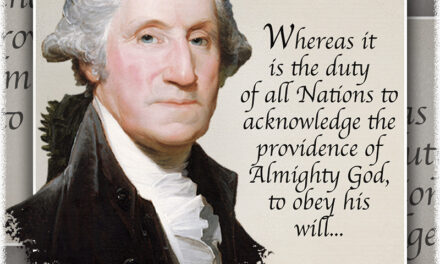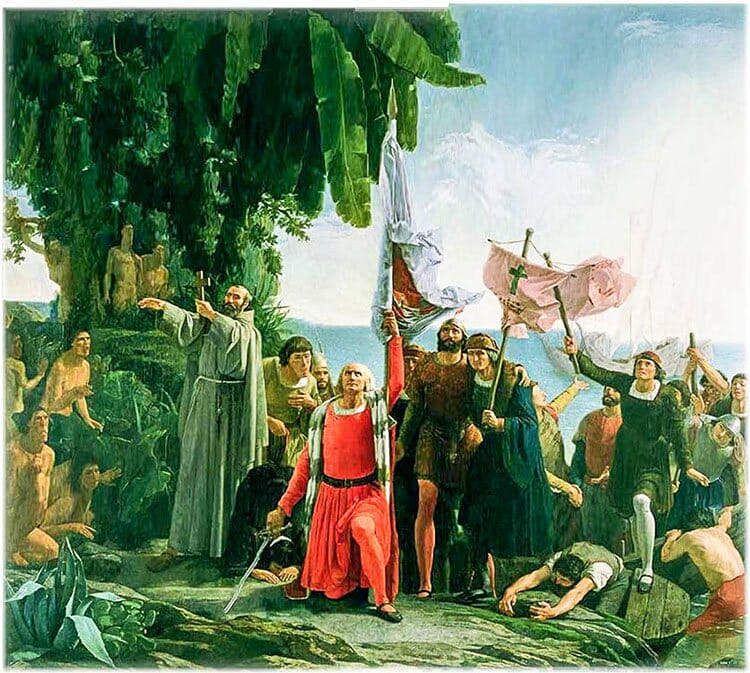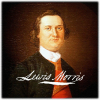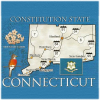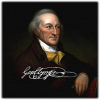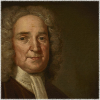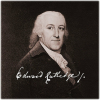The Truth Concerning the Jefferson Bible
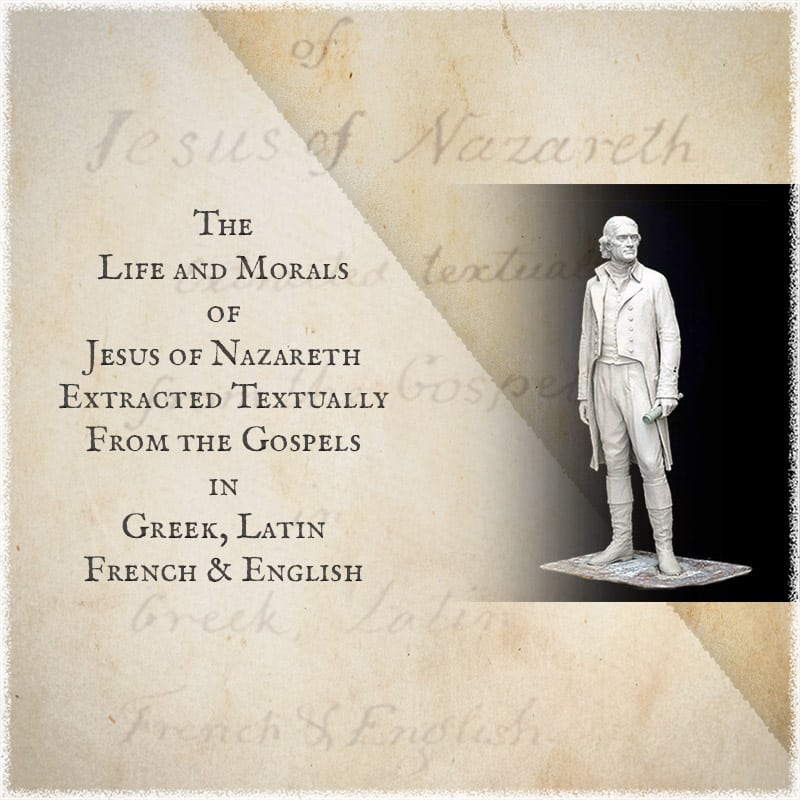
One of the many tools false historians have used against an accurate rehearsal of America's Christian origin has been the alleged "Jefferson Bible." Because Jefferson increasingly leaned away from Christian orthodoxy as he aged, atheists and the irreligious have attempted to place him upon a bust column, exhibiting him as a prototype of all Founding Fathers. But the fact is, an honest historian would never attempt to use Jefferson in this way, knowing that his letters and manuscripts—his own writings—would never permit it. However, the alleged claims concerning the "Jefferson Bible" have gained so much currency on behalf of the irreligious cause that truth must not be permitted to continue to groan under the lashing of error. So as to concede nothing to those who have incorrectly ascribed the label of "Jefferson Bible" to one of his manuscripts, we will refer to two similar works which he authored as manuscripts on morality.Jefferson Bible
The subject addressed in this article is discussed at greater length in America's Founding Fathers and the Bible. Christian Heritage Fellowship would be honored to work with individuals, businesses, churches, institutions, or organizations to help communicate the truth concerning the positive influence of the Christian faith by providing bulk pricing: Please contact us here... To purchase a limited quantity of this publication, please click: Purchase here...
Article ContentsJefferson Bible
Two Bible Manuscripts of Jefferson
One of the best explanations of Jefferson's intent in developing the two manuscripts on morality has already been presented. When writing a biography of Jefferson, author Henry S. Randall requested that Jefferson's grandson, Thomas Jefferson Randolph, provide any memories he thought important to the remembrance of his grandfather. Contained within Randolph's two-page response to author Henry Randall were recollections of Jefferson's familial, moral, and religious life, as well as the details concerning the origin of these two manuscripts. Given the source of these memories, the reader is requested to grant careful consideration to the weight of their testimony by indulging a lengthy quote:
Dear Sir:
In compliance with your request, I have committed to paper my reminiscence of Mr. Jefferson, as they, still green and fresh in my memory, have occurred to me. I was thirty-four years old when he died...I was more intimate with him than with any man I have ever known; his character invited such intimacy—soft and feminine in his affections to his family, he entered into and sympathized with all their feelings, winning them to paths of virtue by the soothing gentleness of his manner...While he lived, and since, I have reviewed with severe scrutiny those interviews, and I must say, that I never heard from him the expression of one thought, feeling or sentiment inconsistent with the highest moral standard, or the purest Christian charity in its most enlarged sense. His moral character was of the highest order, founded upon the purest and sternest models of antiquity, softened, chastened and developed by the influences of the all-pervading benevolence of the doctrines of Christ—which he had Intensely and admiringly studied. As a proof of this, he left two codifications of the morals of Jesus—one for himself, and another for the Indians; the first of which I now possess, viz., a blank volume, red morocco, gilt, lettered on the back “The Morals of Jesus"—into which he pasted extracts in Greek, Latin, French and English, taken textually from the four Gospels, and so arranged that he could run his eye over the readings of the same verse in four languages. The boldness and self-confidence of his mind was the best guaranty of his truthfulness—he never uttered an untruth himself, or used duplicity, and he contemned [regarded with contempt] it in others—no end, with him could sanctify falsehood.
In his contemplative moments, his mind turned to religion, which he studied thoroughly. He had seen and read much of the abuses and perversions of Christianity; he abhorred those abuses and their authors and denounced them without reserve. He was regular in his attendance on church, taking his prayer-book with him. He drew the plan of the Episcopal Church in Charlottesville—was one of the largest contributors to its erection and contributed regularly to the support of its minister. I paid, after his death, his subscription of $200 to the erection of the Presbyterian church in the same village. A gentleman of some distinction calling on him and expressing his disbelief in the truths of the Bible, his reply was, “Then, sir, you have studied It to little purpose." He was guilty of no profanity himself and did not tolerate it in others—he detested impiety, and his favorite quotation for his young friends as a basis for their morals, was the xv. psalm of David. He did not permit cards in his house—he knew no game with them. Of his peculiar religious opinions, his family know no more than the world. If asked by one of them, his opinion on any religious subject, his uniform reply was, that it was a subject each was bound to study assiduously for himself...
His codification of the Morals of Jesus was not known to his family before his death, and they learnt from a letter addressed to a friend, that he was in the habit of reading nightly from it, before going to bed. His report as Rector of the Board of Visitors of the University of Virginia, to the Legislature, places in its proper view, his sense of the importance of religious instruction.[1]
Randolph's account of the two manuscripts matches the historical record and the original intent of their author. Chronologically, the manuscript "for the Indians" was composed in 1804, and the second manuscript "for himself" was completed in 1820.
President Jefferson demonstrated a deep concern for the physical and spiritual well-being of the American Indian. During his first term as President, he sanctioned several acts which obligated the federal government to facilitate the ministry of Christian missionaries among the Indians.[2] From such acts, it is apparent liberal judges (and other members of jurisprudence) do not truly know Jefferson or his political thought. The subject of the natives of America was not a passing interest with Jefferson. Among the various Bibles in his library was the first Bible printed in North America, the Eliot Bible, translated and published in Algonquin for the Natick Indians by Christian missionary John Eliot in 1663.[3] Jefferson maintained contact with ministers, religious leaders, and other individuals[4] concerning the work and promotion of Christian missions to the Indians; among the minsters with whom he communicated concerning these efforts were Reverend Samuel Miller[5] and Reverend William Linn.[6]
Having provided the background of the two manuscripts on Christian morality from Jefferson's grandson, Thomas Jefferson Randolph, author Henry Randall offered further description of the 1804 manuscript. The title and subtitle clearly explain Mr. Jefferson's intent in composing this first work:
The Philosophy of Jesus of Nazareth
Extracted from the account of his life and doctrines as given by Matthew, Mark, Luke, and John. Being an abridgment of the New Testament for the use of the Indians, unembarrassed with [removed from] matters of fact or faith beyond the level of their comprehensions.[7]
From all indications, Jefferson was initially motivated to write this work for the Indians by a friend, Reverend William Bennet. Not long prior to penning this work, he received a letter from his friend, Edward Dowse,[8] who also sent a copy of a sermon preached in Scotland several years earlier that had been delivered by evangelical minister, Reverend William Bennet. The title of the sermon was The Excellence of Christian Morality: A Sermon, Preached Before the Society in Scotland for Propagating Christian Knowledge, at Their Anniversary Meeting, Thursday, 6th June 1799.[9] After reading the sermon, Jefferson responded a couple of weeks later in a letter saying,
I must also add that tho’ I concur with the author in considering the moral precepts of Jesus, as more pure, correct, and sublime than those of the antient [ancient] philosophers, yet I do not concur with him in the mode of proving it. He thinks it necessary to libel and decry the doctrines of the philosophers. But a man must be blinded indeed by prejudice, who can deny them a great degree of merit. I give them their just due, and yet maintain that the morality of Jesus, as taught by himself and freed from the corruptions of later times, is far superior.[10]
He continued, noting that unorthodox Joseph Priestly had already written a comparison between Jesus and Socrates, and Jefferson had written to him to "urged him to take up the subject on a broader scale." Though it is not possible to determine with absolute certainty a direct cause and effect concerning Jefferson's first manuscript on morality, what is evident is that circumstances related to that era in his life were influential in producing it—particularly the concern of communicating to non-Christian people groups, which in his case was the Indians.
Throughout the twentieth and early twenty-first centuries, secularists have contended that Jefferson attempted to write his own Bible, void of the miracles of the Bible, something that was characteristic of Deism. It is this work that secularists have designated as "Jefferson's Bible." The fact is, he took two Bibles he had in the White House, cut from them the words of Jesus (which are commonly regarded as the "red letters") and arranged them on separate sheets of paper.[11] His title indicates his intent: "…an abridgment of the New Testament for the use of the Indians."[12] As has been repeatedly demonstrated by Jefferson scholars,[13] this abridgment did indeed include miracles. Given the fact that Deists did not believe God related to the world—other than the initial act of creation—the fact that Jefferson did indeed include miracles in this first work on morality discredits and completely denies the claim that Jefferson was a Deist.
The second of the two manuscripts (of 1820), according to Mr. Jefferson's grandson, was titled, “The Morals of Jesus." The complete title was The Life and Morals of Jesus of Nazareth.[14] For America's Founding Fathers, the foundation or basis of human morality was an important subject. That is, they were concerned about how individuals as well as societies determined what was right and what was wrong; why certain deeds or laws were right or wrong was a concern to them. In fact, this issue was so important to the Founders that they wove it into one of four of America's "organic laws" or most important statutes that had to be observed by all other laws. The four organic laws of America are the Declaration of Independence (July 4, 1776), the Articles of Confederation (November 15, 1777), the Northwest Ordinance (July 13, 1787), and the Constitution of the United States (September 17, 1787). In America's third organic law, the Northwest Ordinance, America's Founding Fathers inserted a requirement for states of the Northwest Territories that would eventually join the Union. This requirement was also fulfilled in the constitutions of other states as they joined the United States. And, what was that moral requirement? It is found in article 14, section 3:
Religion, morality, and knowledge, being necessary to good government and the happiness of mankind, schools and the means of education shall forever be encouraged.[15]
For America's Founding Fathers, the term "religion" was a synonym with the term "Christianity." While they did not believe any particular Christian church or denomination should be recognized as the official denomination of the nation, they did believe Christianity should be encouraged. It should also be noticed that teaching concerning "religion" (or Christianity) was—in the thinking of the Founding Fathers—to precede the teaching of "morality." Contrary to contemporary notion that a child should be permitted to develop his own system and sense of what is right and wrong, the Founders believed—like the learning of mathematics or any other discipline—that right principles had to precede right practice and must be taught to youth. That this was a prevalent understanding of the Founders is seen in George Washington's Farewell Address (in 1796), in which he warned that right morality must be based upon right religion:
Of all the dispositions and habits which lead to political prosperity, religion and morality are indispensable supports. In vain would that man claim the tribute of patriotism, who should labor to subvert these great pillars of human happiness, these firmest props of the duties of men and citizens. The mere politician, equally with the pious man, ought to respect and to cherish them. A volume could not trace all their connections with private and public felicity. Let it simply be asked: Where is the security for property, for reputation, for life, if the sense of religious obligation desert the oaths which are the instruments of investigation in courts of justice? And let us with caution indulge the supposition that morality can be maintained without religion. Whatever may be conceded to the influence of refined education on minds of peculiar structure, reason and experience both forbid us to expect that national morality can prevail in exclusion of religious principle.[16]
So deeply intertwined were religion and morality in the minds of the Founders that their most important academic institutions were constructed to reflect this fact. A Professor of Moral Philosophy was an established chair at Jefferson's University of Virginia.[17] Princeton University had a Professor of Moral Philosophy,[18] and President Rev. John Witherspoon—signer of the Declaration of Independence—delivered "Lectures on Moral Philosophy."[19] Harvard had both a Professor of Natural, Intellectual, and Moral Philosophy as well as a Professor of Christian Morals.[20] In fact, instruction in religion and morality was common in major colleges established during the Founding era.[21]
What is often overlooked when studying the lives of America's Founders is the era in which they lived with regard to intellectual influences. The Renaissance, which extended from the fourteenth to the seventeenth centuries, continued to cast a shadow of intellectual and literary authority over the eighteenth century, particularly with regard to the study of the pagan writers of the Greco-Roman world. Knowledge of these writers by the Founding Fathers was very high, and it was common for them to compare and contrast their Christian faith with that of these "classical" Greco-Roman authors.[22] With this fact in mind, we should not be surprised to see Thomas Jefferson assert the supremacy of Jesus over those outside the Christian faith with whom he is most familiar—the pagan Greco-Roman writers:
I consider the genuine (not the imputed) doctrines of Epicurus as containing everything rational in moral philosophy which Greece and Rome have left us. Epictetus indeed, has given us what was good of the Stoics; all beyond, of their dogmas, being hypocrisy and grimace. Their great crime was in their calumnies of Epicurus and misrepresentations of his doctrines; in which we lament to see the candid character of Cicero engaging as an accomplice....His prototype Plato, eloquent as himself, dealing out mysticisms incomprehensible to the human mind, has been deified by certain sects usurping the name of Christians...Of Socrates we have nothing genuine but in the Memorabilia of Xenophon; for Plato makes him one of his Collocutors merely to cover his own whimsies under the mantle of his name; a liberty of which we are told Socrates himself complained. Seneca is indeed a fine moralist, disfiguring his work at times with some Stoicisms, and affecting too much of antithesis and point, yet giving us on the whole a great deal of sound and practical morality. But the greatest of all the reformers of the depraved religion of His own country, was Jesus of Nazareth.[23]
And in a letter to Joseph Priestly, Jefferson wrote concerning his attempt to compare and contrast the superior morals of Jesus with the Greco-Roman moralists and the Jews:
I should first take a general view of the moral doctrines of the most remarkable of the ancient philosophers, of whose ethics we have sufficient information to make an estimate, say Pythagoras, Epicurus, Epictetus, Socrates, Cicero, Seneca, [or] Antoninus....I should then take a view of the deism and ethics of the Jews, and show in what a degraded state they were, and the necessity they presented of a reformation. I should proceed to a view of the life, character, and doctrines of Jesus...the most eloquent and sublime character that ever has been exhibited to man.[24]
Unlike his first manuscript on Christian morality which Jefferson wrote during his presidency, this second manuscript on the morals of Jesus was begun following his presidency. And, unlike the first manuscript which was intended to lead Indians to Jesus Christ and which is incorrectly dubbed the "Jefferson Bible," the second manuscript appears never to have been composed for the purpose of publication, but rather was intended as a moral catechism for Jefferson's own regular use. On October 13, 1813, he wrote to his friend, John Adams, informing him of the success of his efforts to compose this manuscript which entailed extracting the words of Jesus from the four Gospels:
I have performed this operation for my own use, by cutting verse by verse out of the printed book, and arranging the matter which is evidently his, and which is as easily distinguishable as diamonds in a dunghill. The result is an octavo of forty-six pages, of pure and unsophisticated doctrines, such as were professed and acted on by the unlettered Apostles, the Apostolic Fathers, and the Christians of the first century.[25]
More than a year later, he wrote to his friend and well-known evangelical minister, Reverend Charles Clay, on January 29, 1815 informing him of his effort:
Probably you have heard me say I had taken the four Evangelists [Gospels], had cut out from them every text they had recorded of the moral precepts of Jesus, and arranged them in a certain order, and although they appeared but as fragments, yet fragments of the most sublime edifice of morality which had ever been exhibited to man.[26]
Less than a year later, on January 9, 1816, Jefferson wrote to his friend Charles Thomson, former Secretary of Congress and Christian theologian, first taking note of Thomson's "synopsis of the four Evangelists," before sharing with Thomson of his own writings on the Bible:
I, too, have made a wee-little book from the same materials, which I call the Philosophy of Jesus; it is a paradigma of His doctrines, made by cutting the texts out of the book, and arranging them on the pages of a blank book, in a certain order of time or subject. A more beautiful or precious morsel of ethics I have never seen; it is a document in proof that I am a real Christian, that is to say, a disciple of the doctrines of Jesus...If I had time, I would add to my little book the Greek, Latin and French texts, in columns side by side.[27]
Four years later, in 1820, he had completed his "wee little book," including the Greek, Latin, and French translations, "in columns side by side." Thomas Jefferson labored for years to compose a synopsis of the Four Gospels concerning the Life and Morals of Jesus of Nazareth. As he stated, he did it for, "my own use."[28] His grandson's summary of his two works is a poignant reminder to those defending America's Christian heritage who are called upon to stave off erroneous secular claims of a Jefferson Bible:
His moral character was of the highest order, founded upon the purest and sternest models of antiquity, softened, chastened and developed by the influences of the all-pervading benevolence of the doctrines of Christ—which he had Intensely and admiringly studied. As a proof of this, he left two codifications of the morals of Jesus—one for himself [1820], and another for the Indians [1804] ; the first of which I now possess, viz., a blank volume, red morocco, gilt, lettered on the back “The Morals of Jesus"—into which he pasted extracts In Greek, Latin, French and English, taken textually from the four Gospels, and so arranged that he could run his eye over the readings of the same verse in four languages.[29]
While Thomas Jefferson appears to have moved away from his Christian orthodoxy[30] following his wife’s death,[31] he never was a deist, as some allege his two manuscripts on the Bible imply. In the 1920s, the attack against America’s Christian heritage began in earnest from Marxist forces. The character of the Founding Fathers was assailed by the disciples of Marx who were committed to a communist subversion of America. Tragically, many “Christians” have drunk deeply from this communist fountain and have allowed themselves to swallow what subverters of America have served them. Ask them for primary evidence, and they always speak in generalities.
It is unnecessary to say that not all Founding Fathers were Christians, but the overwhelming majority were. Secularists have identified nearly half dozen Founding Fathers who were prominent leaders and have attempted to generalize their influence, suggesting that most other Founders were deists and irreligious as their chosen half-dozen. But none of this select group—including Franklin—were deists.
"Anchor Elements" are concepts, events, individuals, terms, or other important components that are featured in this article and which act as reference points for use in other articles throughout our site.
No index entries found.
"Thomas Jefferson and the Bible: Publications He Owned." Thomas Jefferson Foundation. Last modified Accessed March 1, 2018. https://www.monticello.org/library/exhibits/images/biblepublications.pdf.
"Northwest Ordinance; July 13, 1787." The Avalon Project: Yale Law School, Lillian Goldman Law Library. Last modified Accessed March 3, 2018. http://avalon.law.yale.edu/18th_century/nworder.asp.
Adams, Dickinson W. and Ruth W. Lester. Jefferson's Extracts from the Gospels. Princeton, NJ: Princeton University Press, 1983.
Adams, Herbert B. Thomas Jefferson and the University of Virginia. Washington: Government Printing Office, 1888.
Adams, John Quincy. Letters of John Quincy Adams, to His Son, on the Bible and Its Teachings. Auburn, [MA] : James M. Alden, 1850.
Barton, David. The Jefferson Lies: Exposing the Myths You've Always Believed About Thomas Jefferson. Nashville: Thomas Nelson, 2012.
Beliles, Mark. Thomas Jefferson’s Abridgement of the Words of Jesus of Nazareth. Charlottesville: Mark Beliles, 1993.
Beliles, Mark A. and Jerry Newcombe. Doubting Thomas? The Religious Life and Legacy of Thomas Jefferson. New York: MJ, 2015.
Bennet, William. The Excellence of Christian Morality: A Sermon, Preached before the Society in Scotland for Propagating Christian Knowledge, at Their Anniversary Meeting, Thursday, 6th June 1799. Edinburgh, 1800.
Dowse, Edward. "To Thomas Jefferson from Edward Dowse, 5 April 1803." National Archives. Last modified Accessed March 2, 2018. https://founders.archives.gov/?q=%28%22Thomas%20Jefferson%22%29%20%28%22William%20Bennet%22%29ands=1511311112andsa=andr=1andsr=.
Harvard, University. Quinquennial Catalogue of the Officers and Graduates of Harvard University, 1636-1895. Cambridge, MA: Published by the University, 1895.
Jefferson, Thomas. "From Thomas Jefferson to Edward Dowse, 19 April 1803." National Archives. Last modified Accessed March 2, 2018. https://founders.archives.gov/documents/Jefferson/01-40-02-0168.
Jefferson, Thomas. The Writings of Thomas Jefferson. Edited by Andrew Adgate Lipscomb, Albert Ellery Bergh, Richard Holland Johnston, and Thomas Jefferson Memorial Aflociation. 20 vols. Washington, DC: Thomas Jefferson Memorial Aflociation of the United States, 1903-1907.
Jefferson, Thomas. The Works of Thomas Jefferson. Edited by Paul Leicester Ford. 12 vols. New York: G.P. Putnam's Sons, 1904.
Linn, William. "To Thomas Jefferson from William Linn, 8 February 1798." National Archives. Last modified Accessed March 2, 2018. https://founders.archives.gov/?q=william%20linnands=1511311112andr=36.
Maclean, John. History of the College of New Jersey: From Its Origin in 1746 to the Commencement of 1854. 2 vols. Philadelphia: J.B. Lippincott, 1877.
Miller, Samuel. "To Thomas Jefferson from Samuel Miller, 10 June 1802." National Archives. Last modified Accessed March 2, 2018. https://founders.archives.gov/?q=%22Samuel%20Miller%22%20and%20%22Thomas%20Jefferson%22%20and%20%22Indian%22ands=1511311112andsa=andr=4andsr=.
Randall, Henry S. The Life of Thomas Jefferson. 3 vols. Philadelphia: J.B. Lippincott, 1888.
Redick, David. "To Thomas Jefferson from David Redick, 10 June 1802." National Archives. Last modified Accessed March 2, 2018. https://founders.archives.gov/?q=%28%22Thomas%20Jefferson%22%29%20%28Indian%29%20%28mission%29ands=1511311112andsa=andr=111andsr=.
Sanford, Charles B. The Religious Life of Thomas Jefferson. Charlottesville: University Press of Virginia, 1995.
Washington, George. "Washington's Farewell Address 1796." The Avalon Project: Yale Law School, Lillian Goldman Law Library. Last modified Accessed March 3, 2018. http://avalon.law.yale.edu/18th_century/washing.asp.
Witherspoon, John. The Works of the Rev. John Witherspoon, D.D., L.L.D, Late President of the College at Princeton, New Jersey. 3 vols. Philadelphia: William W. Woodward, 1800.
[1] Henry S. Randall, The Life of Thomas Jefferson, 3 vols. (Philadelphia: J.B. Lippincott, 1888), 3:671-72.
[2] David Barton, The Jefferson Lies: Exposing the Myths You've Always Believed About Thomas Jefferson (Nashville: Thomas Nelson, 2012), 70-72.
[3] "Thomas Jefferson and the Bible: Publications He Owned," Thomas Jefferson Foundation, March 1, 2018; https://www.monticello.org/library/exhibits/images/biblepublications.pdf.
[4] David Redick, "To Thomas Jefferson from David Redick, 10 June 1802," National Archives, March 2, 2018; https://founders.archives.gov/?q=%28%22Thomas%20Jefferson%22%29%20%28Indian%29%20%28mission%29ands=1511311112andsa=andr=111andsr=.
[5] Samuel Miller, "To Thomas Jefferson from Samuel Miller, 10 June 1802," National Archives, March 2, 2018; https://founders.archives.gov/?q=%22Samuel%20Miller%22%20and%20%22Thomas%20Jefferson%22%20and%20%22Indian%22ands=1511311112andsa=andr=4andsr=.
[6] William Linn, "To Thomas Jefferson from William Linn, 8 February 1798," National Archives, March 2, 2018; https://founders.archives.gov/?q=william%20linnands=1511311112andr=36. Also see April 4, 1798; https://founders.archives.gov/?q=%28%22Thomas%20Jefferson%22%29%20%28Indian%29%20%28mission%29 ands=1511311112andsa=andr=98andsr=.
[7] Randall, The Life of Thomas Jefferson, 3:654.
[8] Edward Dowse, "To Thomas Jefferson from Edward Dowse, 5 April 1803," National Archives, March 2, 2018; https://founders.archives.gov/?q=%28%22Thomas%20Jefferson%22%29%20%28%22William%20Bennet%22%29ands=1511311112andsa=andr=1andsr=.
[9] William Bennet, The Excellence of Christian Morality: A Sermon, Preached before the Society in Scotland for Propagating Christian Knowledge, at Their Anniversary Meeting, Thursday, 6th June 1799 (Edinburgh: 1800).
[10] Thomas Jefferson, "From Thomas Jefferson to Edward Dowse, 19 April 1803," National Archives, March 2, 2018; https://founders.archives.gov/documents/Jefferson/01-40-02-0168.
[11] Barton, The Jefferson Lies, 72.
[12] Randall, The Life of Thomas Jefferson, 3:654.
[14] Barton, The Jefferson Lies, 74.
[15] "Northwest Ordinance; July 13, 1787," The Avalon Project: Yale Law School, Lillian Goldman Law Library, March 3, 2018; http://avalon.law.yale.edu/18th_century/nworder.asp.
[16] Emphasis added. George Washington, "Washington's Farewell Address 1796," The Avalon Project: Yale Law School, Lillian Goldman Law Library, March 3, 2018; http://avalon.law.yale.edu/18th_century/washing.asp.
[17] The University of Virginia started with only two Professorships—law and moral philosophy. Herbert B. Adams, Thomas Jefferson and the University of Virginia (Washington: Government Printing Office, 1888), 158; Randall, The Life of Thomas Jefferson, 467-68.
[18] John Maclean, History of the College of New Jersey: From Its Origin in 1746 to the Commencement of 1854, 2 vols. (Philadelphia: J.B. Lippincott, 1877), 364-65.
[19] John Witherspoon, The Works of the Rev. John Witherspoon, D.D., L.L.D, Late President of the College at Princeton, New Jersey, 3 vols. (Philadelphia: William W. Woodward, 1800), 3:269-374.
[20] University Harvard, Quinquennial Catalogue of the Officers and Graduates of Harvard University, 1636-1895 (Cambridge, MA: Published by the University, 1895).
[21] Barton, The Jefferson Lies, 75.
[22] See John Quincy Adams, Letters of John Quincy Adams, to His Son, on the Bible and Its Teachings (Auburn, [MA] : James M. Alden, 1850).
[23] Emphasis added. Thomas Jefferson, The Writings of Thomas Jefferson, ed. Andrew Adgate Lipscomb et al., 20 vols. (Washington, DC: Thomas Jefferson Memorial Aflociation of the United States, 1903-1907), 15:219-20.
[24] Emphasis added. Jefferson, Writings of Thomas Jefferson, 10:374-75.
[25] Emphasis added. Jefferson, Writings of Thomas Jefferson, 13:390.
[26] Jefferson, Writings of Thomas Jefferson, 14:232-33.
[27] Emphasis added. Jefferson, Writings of Thomas Jefferson, 14:385-86.
[28] Emphasis added. Jefferson, Writings of Thomas Jefferson, 13:390.
[29] Randall, The Life of Thomas Jefferson, 3:671.
[30] Thomas Jefferson, The Works of Thomas Jefferson, ed. Paul Leicester Ford, 12 vols. (New York: G.P. Putnam's Sons, 1904), 2:254-55.
[31] Mark A. Beliles and Jerry Newcombe, Doubting Thomas? The Religious Life and Legacy of Thomas Jefferson (New York: MJ, 2015), 34.

